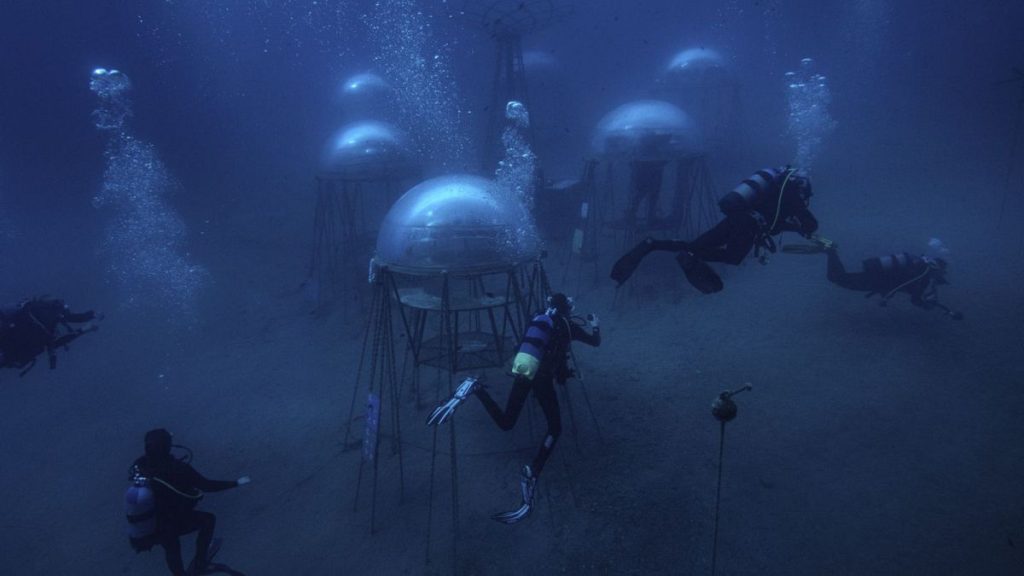The Wellcome Photography Prize, organized by the Wellcome Trust, continues to highlight pressing global issues through evocative imagery contributed by talented photographers. This year’s competition features a top selection of 25 powerful photos, with a focus on themes such as climate change, health impacts, and community resilience. The winners are set to be announced next month, and all selected photos will be showcased in an exhibition at the Francis Crick Institute in London, starting July 17 and running until October 18, 2025.
| Article Subheadings |
|---|
| 1) Insight into the Wellcome Photography Prize |
| 2) Climate Change: A Central Theme |
| 3) Capturing Global Water Crises |
| 4) The Role of Art in Addressing Environmental Issues |
| 5) Community Responses to Climate Challenges |
Insight into the Wellcome Photography Prize
The Wellcome Photography Prize is an initiative executed by the UK-based charitable foundation, Wellcome Trust, which is focused primarily on health research. This prize aims to amplify narratives of health and healthcare through visual storytelling. One of the judges, Elizabeth Wathuti, a prominent Kenyan climate activist, emphasized the power of photography by stating,
“A picture is worth 1,000 words, and that means they can really change perceptions of different things in society.”
The prize has garnered significant attention over the years, attracting photographers from various backgrounds who are keen to explore and document urgent health-related topics. The selection of 25 photographs highlights a diverse array of experiences and challenges faced globally, with the winners to be announced in the coming month.
Climate Change: A Central Theme
Among the critical issues addressed in the Wellcome Prize submissions is climate change, which has emerged as a predominant theme. The photographs not only capture the harsh realities but also showcase the resilience and creativity of individuals and communities navigating this global threat. As documented by various photographers, the health implications of climate change are extensive, with evidence suggesting that the degradation of natural resources leads to dire consequences for human health and survival. Photographers are tasked with conveying these impacts, often drawing upon striking visuals that tell complex stories that a mere written narrative may not capture completely.
Capturing Global Water Crises
Water crises are a pressing concern worldwide, as illustrated in photographs from regions stricken by severe droughts and irregular rainfall patterns. For instance, in West Bengal, India, the changing monsoon cycles have resulted in failed crops and dried riverbeds, forcing residents to extract water from inadequate sources. This situation has been powerfully depicted by Indian photographer Sandipani Chattopadhyay, who highlights the stark reality that many communities face as they adapt to changing environmental conditions. The imagery serves as a stark reminder of the continuing struggles tied to water accessibility, a vital resource that influences health and wellbeing.
The Role of Art in Addressing Environmental Issues
Art plays a transformative role in raising awareness about environmental issues. The Wellcome Photography Prize is a testament to this, as it showcases how photography can evoke strong emotional reactions and provoke meaningful conversations. By capturing images of pollution, climate crises, and innovative environmental solutions, photographers celebrate the beauty of the natural world while confronting its fragility. Each selected work encourages viewers to consider their personal and collective responsibilities toward environmental stewardship, empowering communities to take action against climate change.
Community Responses to Climate Challenges
Photographers featured in the Wellcome Photography Prize often approach climate issues from a community-centered perspective. In various parts of the world, including Dhaka, Bangladesh, and Peru, individuals are finding innovative ways to tackle the impacts of climate change directly. Mithail Afrige Chowdhury depicts a mother and child trying to recreate a picnic experience amidst the growth of urban areas, highlighting how rapid urbanization forces people to adapt in unique ways. Similarly, the work of Slovenian photographer Ciril Jazbec showcases local farmers in Peru blending traditional knowledge with scientific methods to preserve water sources in the Cordillera Blanca. These narratives reflect the inherent strength of communities as they navigate the challenges posed by climate change.
| No. | Key Points |
|---|---|
| 1 | The Wellcome Photography Prize focuses on health-related storytelling through visual art. |
| 2 | Climate change remains a prevalent theme in this year’s submissions. |
| 3 | Water crises are highlighted, showcasing the challenges faced by vulnerable communities. |
| 4 | Art plays a vital role in raising awareness about environmental issues and inspiring action. |
| 5 | Communities are actively adapting to climate challenges through innovative practices. |
Summary
The Wellcome Photography Prize serves as a powerful platform to shine a light on critical health and environmental issues through compelling visual narratives. By focusing on themes such as climate change, community resilience, and water crises, the competition calls attention to the urgent challenges many face globally. As the selected works prepare to be showcased in the upcoming exhibition, they not only promote awareness but also advocate for unity and action in addressing these pressing concerns.
Frequently Asked Questions
Question: What themes are highlighted in this year’s Wellcome Photography Prize?
This year’s prize prominently features themes related to climate change, health impacts, and community resilience, presented through powerful visual storytelling.
Question: Where will the photographs be exhibited?
The selected photographs will be exhibited at the Francis Crick Institute in London, from July 17, 2025, to October 18, 2025.
Question: How can photography contribute to climate awareness?
Photography can evoke emotional responses and bring visibility to pressing issues, prompting conversations and encouraging action among viewers regarding climate change and environmental stewardship.


